Addressing the issue of gender inequality in the photography community
It's no secret gender inequality is a big problem in photography and this year's International Women's Day theme of #BreakTheBias is very fitting
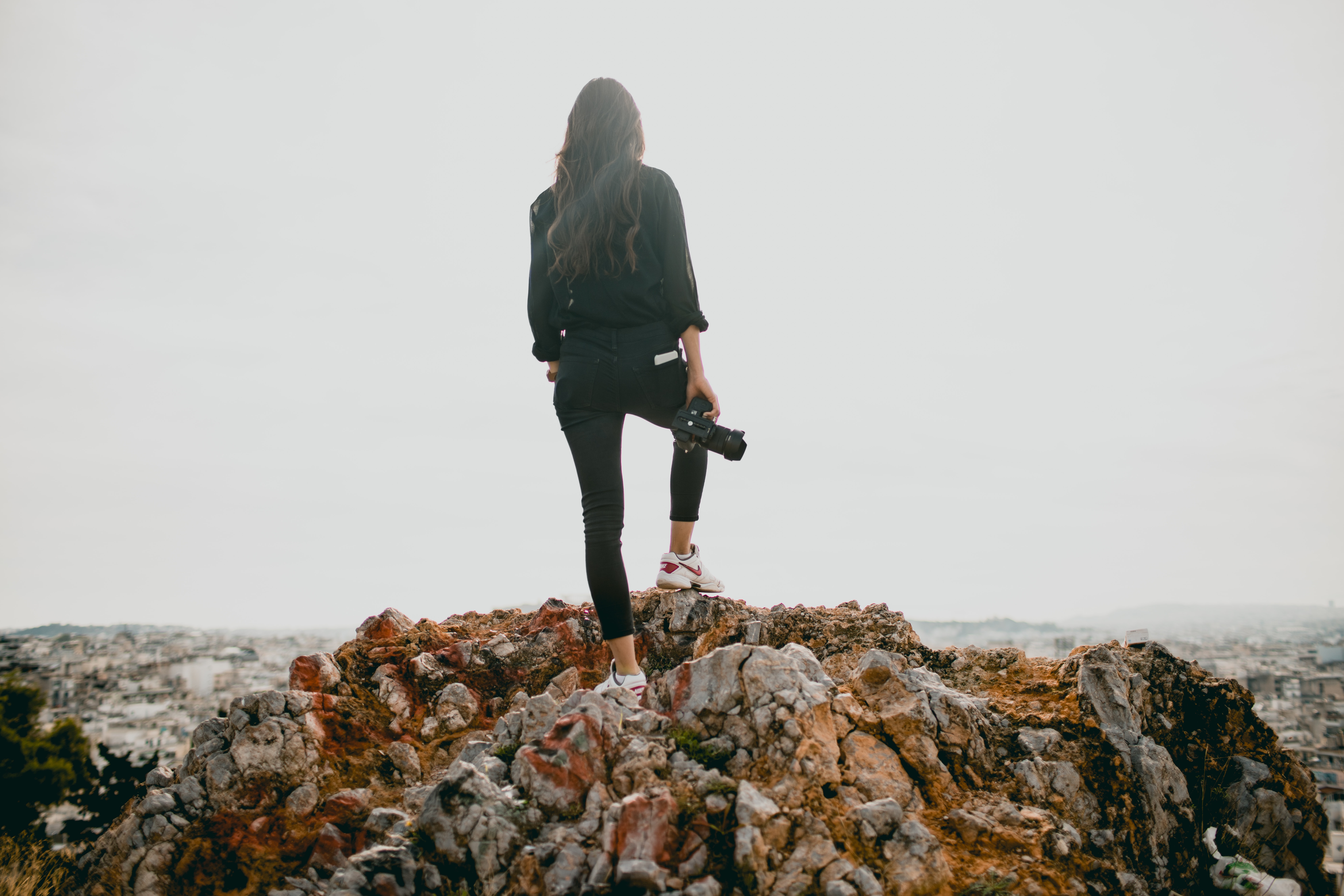
This year's campaign theme for International Women's Day is #BreakTheBias and it's certainly something we can do more for in the photography community. Ask any female or female-identifying photographer, at one point or another she / they would’ve been talked down to, sexually harassed, belittled or made to feel uncomfortable by their male counterpart. I wish from the bottom of my heart this were not the case but, sadly, misogyny within the photography community is still rife – and it’s the men who turn a blind eye that are the biggest problem.
As a journalist for Digital Camera World (DCW), I’m lucky I get to write anything from opinion pieces to camera reviews to features on talented photographers from different backgrounds, races and genders. I love writing about and practicing photography, but it makes me sad how often I find myself and other female-identifying people on the receiving end of misogyny.
One of the first opinion pieces I wrote for DCW was about why why I switched from a Fujifilm X-T3 to a Sony A7 III. As always, the post was shared on Facebook and I was surprised to find in the comments section that nearly everyone referred to me as he. Despite my name being clearly written several times alongside a picture of me, it seemed like it was almost incomprehensible to some people that a woman might have an opinion on camera equipment.
A Hundred Heroines is an organization that recognizes the need to increase public awareness of the contribution women make in visual arts and in particular photography. In July 2020, it released a report titled Why women? Why our focus on women in photography? It outlines several examples where women are underrepresented, exploited due to their gender or unfairly paid in comparison to males. It also recognizes what progress has been made to showcase female photographers, by highlighting awards such as Female in Focus by 1854, Media and the reformation of The Association of Photographers f22 group – a support network first formed in the 1980s for female members to address the issues of inequality.
Magnum Photos is one of the largest photographic companies in the world, and is inspiring to so many people, yet out of its 98 photographers, just 16 are women. Furthermore, according to the National Museum of Women in Arts based in Washington DC, USA, very few members of the public can name five female artists. A paper on Is Gender in the Eye of the Beholder? Identifying cultural attitudes with art auction prices was written by students from Oxford and Luxembourg University who discovered that, on average, women are paid 47% less than men and the value of their work decreases when they sign it.
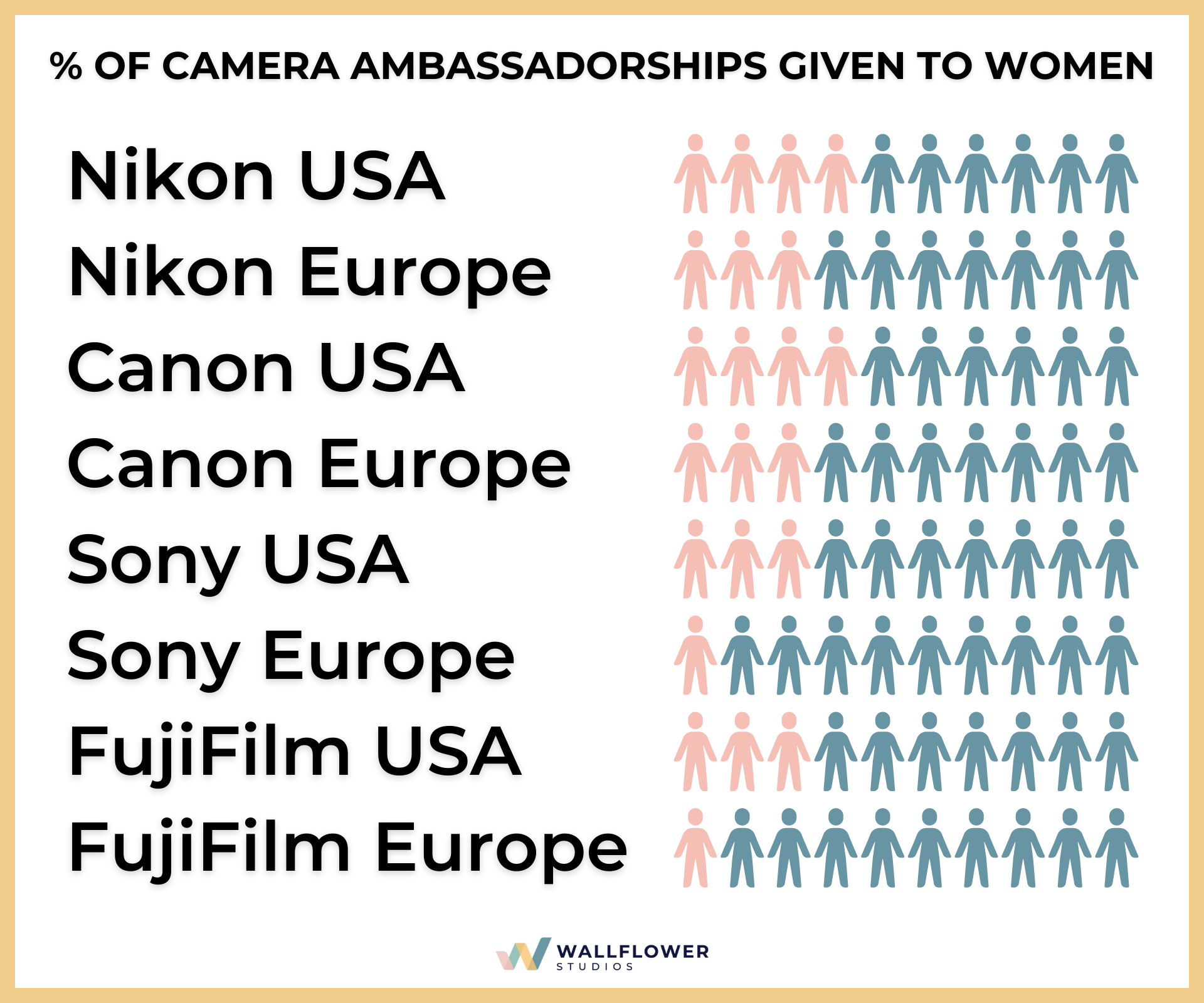
Even the biggest camera brands in the world aren’t doing all they can to ensure gender equality. A study conducted by Wallflower Studios in Slovenia uncovered that a disproportionate number of males work as photographers, win photography competitions and are featured on social media.
Give Us Features, Not Flowersexposed that in 2021 only 22% of Nikon, Canon, Sony and Fujifilm ambassadors were female, women photographers are only featured on major photography brands' Instagram accounts 17-40% of the time compared to men, and women photographers in the UK only appear in UK search results 17-27% of the time.
Get the Digital Camera World Newsletter
The best camera deals, reviews, product advice, and unmissable photography news, direct to your inbox!
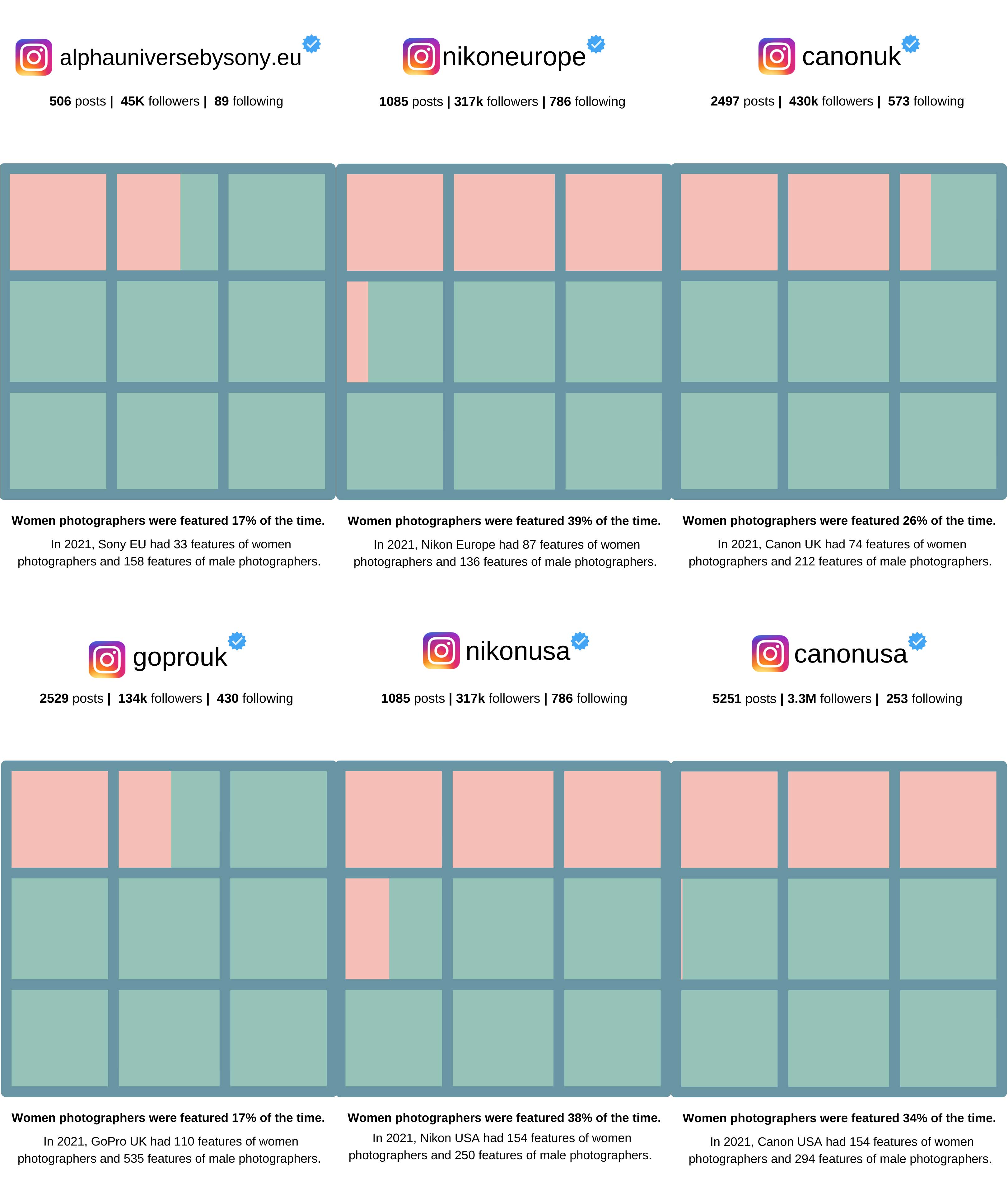
In order to change these statistics, the big names in the industry need to start doing more to ensure a more gender-balanced future. It’s not acceptable for a brand such as Nikon to run a campaign featuring 32 male photographers and 0 females. It sets a precedent that young women working in photography won’t make it because we are not being represented.
Now, I’m by no means tarnishing all men with the same brush. I have male friends who are photographers who would never dream about talking down to me; they admire my work and the way I move around this community, facing challenges that many of them will never have to. I’m also not trying to claim that women are any more talented or deserve more opportunities than men – we just want equal opportunities, equal pay and to feel safe when we are working.
As a female photographer I have been sexually harassed, I have had men question my knowledge and skills, I have been on the receiving end of inappropriate comments about my appearance and I’ve had people refer to me using the wrong pronouns online. When I was working at one of the top UK camera retailers, I would often give advice that a male customer didn’t deem correct and he would demand to speak to my manager, only to be given exactly the same information – only this time it was accepted graciously.
I don’t expect everyone to share my views or even agree with them, but I do expect people to treat each other with humanity regardless of gender, sex, race age or any other creed. Usually, I don’t let mindless comments from ignorant men get to me but recently I’ve found it hard to contain my disappointment at some of the comments people have shared to the DCW Facebook.
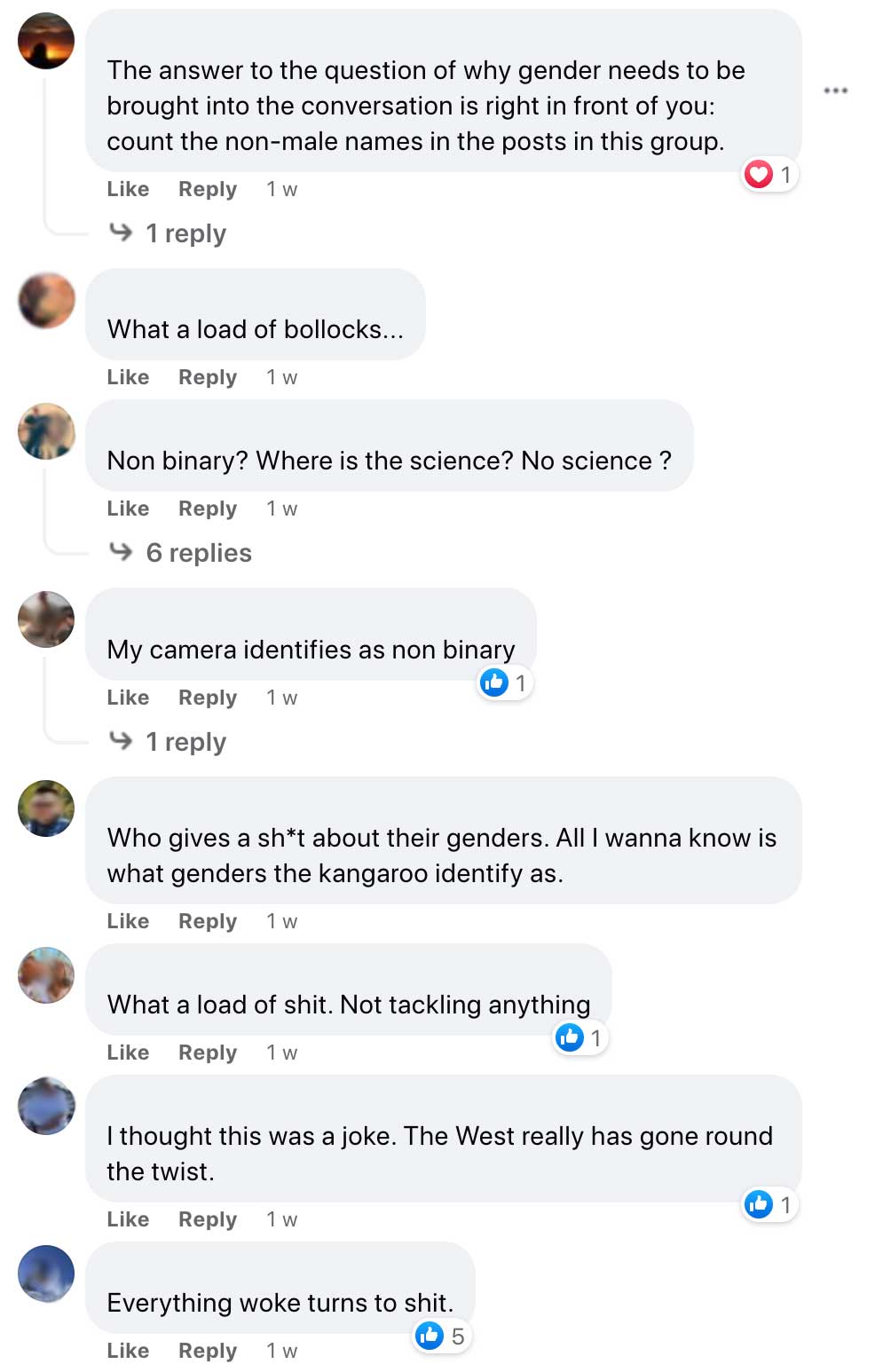
On a post about female and non-binary photographers, comments included “surely we are all simply photographers, irrespective of anything else?” or “what garbage we’re all photographers end of”. Not only are they unhelpful and insulting, but they prove that there is still a massive lack of understanding from men who don’t realize why highlighting the work of women is so important.
Until we can shoot a wedding without being harassed, are paid equally to men and are represented fairly by the big names in the business, it is important that photography platforms highlight the work of incredible female and female-identifying photographers. According to the Hundred Heroines research, despite the fact that around 70-80% of photography students are women, only 15% make up professional photographers.
I’m sick and tired of people who won’t ever understand the struggle of being a female photographer, commenting on what is and isn’t appropriate to say. We should be able to proudly boast about work by our fellow females and female-identifying photographers without the risk of offending someone's fragile masculinity. It’s the 21st Century and it’s about time people stopped making other people's gender and sexuality about them. Just because you don’t see it as an issue doesn’t mean it isn’t one.
Read more:
10 queer photographers you should follow on Instagram
A wedding photographer speaks out against sexual harassment
Photographs of women, shot by women mark International Women's Day
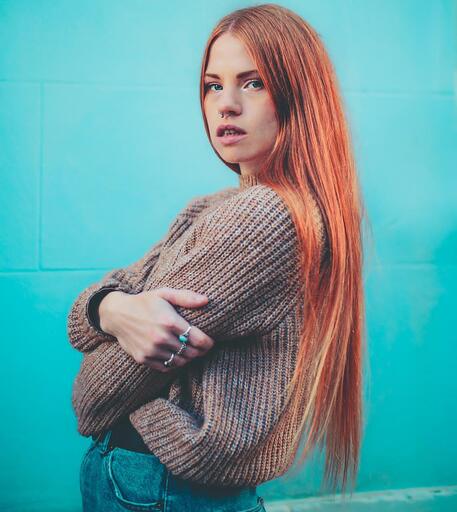
Having studied Journalism and Public Relations at the University of the West of England Hannah developed a love for photography through a module on photojournalism. She specializes in Portrait, Fashion and lifestyle photography but has more recently branched out in the world of stylized product photography. Hannah spent three years working at Wex Photo Video as a Senior Sales Assistant, using her experience and knowledge of cameras to help people buy the equipment that is right for them. With eight years experience working with studio lighting, Hannah has run many successful workshops teaching people how to use different lighting setups.
